#Monkey King孫悟空
Photo


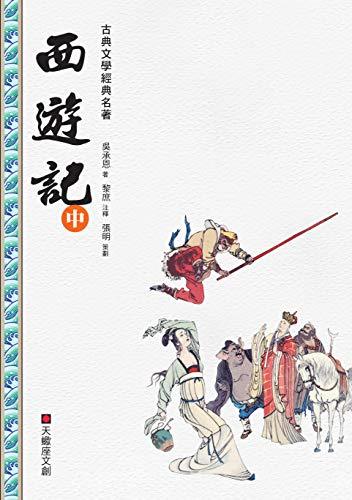




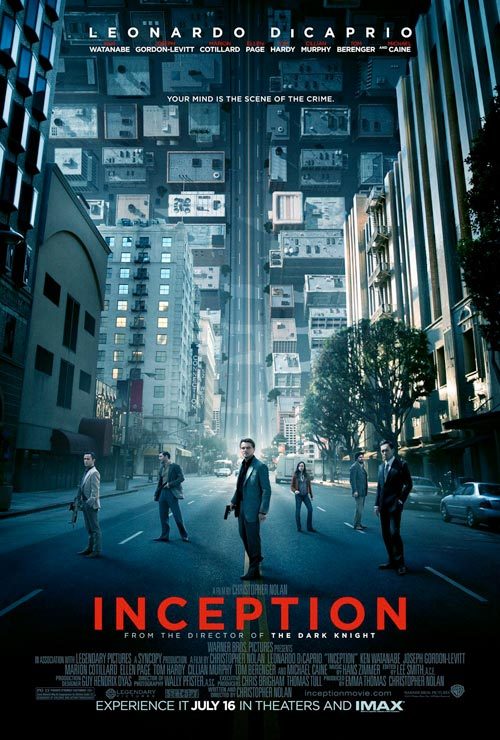
Rise Or Fall? The Complete Understanding Of Metaverse From The Philosophical, Cultural, Scientific And Social Perspectives
There are many recent popular films on ‘Metaverse’: Everything Everywhere All at Once, Doctor Strange in the Multiverse of Madness and Free Guy.
Technology company WayRay promotes its new kind of 'human world' as this: humankind has long been fascinated with a different reality—a different plane of existence, a different identity and a new perspective. To interact with a different reality might have been a dream decades ago, but now it is as real as the phone you are holding today. The technology is now mature enough, and we can all reach into the ‘Metaverse’.
What exactly is a ‘Metaverse’? It was said, “The meta-verse ('Meta’ + ‘Universe') is a virtual ‘reality space’ on the internet where a user can create a ‘human identity’ to live, interact and play, as well as experience things that he could always do in the real world." Metaverse will be another globe running parallel to and circumventing the existing world. The term came from a science fiction Snow Crash by Neal Stephenson in 1992 and the story depicted a virtual world on the internet that has buildings, roads, parks and shopping malls in which we could enjoy ‘a collateral life’.
It was pointed out Metaverse has 8 characteristics: (1) living under a virtual identity (2) getting along with new virtual ‘co-beings’ (3) instant and spontaneous movements by you commanding your extended identity in the virtual environment (4) an ‘as-if-real’ immersive experience in the virtual world (5) doing the great things which are humanly impossible for you to try in real life such as flying and roles transforming (6) the self-functioning economy of Metaverse by which you can become rich (7) vast supply of fascinating games and contents; and (8) co-building a ‘post-modern human civilization’.
Metaverse was made possible by scientific achievements. The advent of new technologies like 5G or 6G mobile network, Web 3.0, AI (Artificial Intelligence), VR (Virtual Reality), AR (Augmented Reality) and MR (Mixed Reality) solved many technical problems. The necessary equipment to operate Metaverse is expensive and includes special headset, personal computer, mobile phone, web, projection and kiosk. The ‘money’ transactions there involve innovative softwares like De-Fi (Decentralized Finance), IPFS (Inter-planetary File System) and NFT (Non-fungible Token). Mark Zuckerberg announced that ‘Meta’ (formerly known as Facebook) would soon file patent applications for a number of useful devices such as a pair of ultra-sensitive gloves to make 'Meta' bodily experience almost real. Can you afford all these?
Perhaps I am old, if not senile. The real world is already burdensome enough on a daily basis. My sure horror will come from the additional labour and toil associated with consuming a few hours per day on living in another artificial Metaverse. I get enough, if not more than enough, friends. Why should I meet more virtual people in the disguise of different identities and a lot of them may be crooks? I, nevertheless, envy the energetic ones who can handle two lives and two worlds.
I ask around to find out my friends’ interest on Metaverse. A said, “Communication technology simply makes people unnecessarily busy!” B said, “It’s cool! I want to be a powerful KOL or KOC in such a brave new world.” C said, “If I can make lots of money there, why not? I’m planning to buy some lands there.” D said, “I will be horrified when my 22-year-old girlfriend in Metaverse turns out to be an 80-years-old man!” E said, “Would it be lawful or immoral to attend a drug party in Metaverse?” F said, “How exciting it will be since I can hold a big concert there in the face of Michael Jackson?” G said, “I will transform myself into the most gorgeous girl there and attract loads of boyfriends!” H said, “I am afraid of sexual harassment. An English female beta tester was once groped by a stranger on Horizon Worlds!”
There is a famous philosophical story (莊周蝶夢)(Zhuang Zhou & Butterfly)of our ancient scholar Zhuangzi(莊子)(about 369 to 286 B.C.) that every Chinese knows. Zhuang dreamed that he was a butterfly. He suddenly woke up and found he was still himself, solid and human. He was puzzled and left us with his great theory of Taoism. “Am I really a man that dreamed of being a butterfly or whether I am a butterfly dreaming as a man?” This great Chinese thinker tried to challenge what we took as real might be unreal and what was unreal might be real. Perhaps he was the first one who inspired us on virtual reality thousand years ago. The French philosopher R Descartes (1596-1650) said, “No certain indications by which we may clearly distinguish wakefulness from sleep.” The development of Metaverse as the popular ‘second reality’ will lead more people to pursue a hot debate: can young people in the 23rd century choose to live in a virtual world of butterflies and refuse to live in a human world?
The other amazing Chinese ancient fairy tale protagonist is ‘The Monkey King’. It is based on the ancient story Journey to the West(西遊記) about a famous monk Xuanzang (玄奘) (602-664) who travelled on foot from China to India for the authentic Buddhist scriptures, escorted by Monkey King(孫悟空). This monkey was clever and rebellious. He acquired an immortal life and could transform him into seventy-two different identities in different situations at the same time. Riding clouds in the sky as a vehicle (Monkey King today will probably use Internet as his vehicle), he was able to travel 108,000 miles by a single somersault to meet friends. Would the Metaverse users dream of being a butterfly or Monkey King which were all old prophecies of ‘virtual reality’.
Many predict that your digital existence will become more important than your physical life. In the Metaverse, your life is fascinating with all that you can enjoy. But on earth, you may be lonely and miserable. Virtual life may be joyful. A real life can be sad. Nevertheless, the more humans lose themselves in a non-existent world, the more Artificial Intelligence technology will control us in future. I do not want to live in the virtual world because it will not give me a nice haircut! Do you? Happiness boils down to simplicity.
MLee
Chinese Version 中文版: https://www.patreon.com/posts/shi-kai-shi-huan-67507595?utm_medium=clipboard_copy&utm_source=copy_to_clipboard&utm_campaign=postshare
Movie “Everything Everywhere All at Once” Trailer HK https://youtu.be/E7qroZ-IulA Acknowledgement – A Really Happy Film
Movie “Free Guy” Trailer https://youtu.be/_vBOPZBPOjo Acknowledgement-20th Century Studios HK
What is Metaverse https://youtu.be/ZhD0FtWSiRo Acknowledgement-BBC News
Metaverse development in Korea https://youtu.be/ov_SCy-cKJc Acknowledgement-BBC News
Metaverse – Virtual Teresa Teng https://youtu.be/rN2PNMGtn2Q Acknowledgement-TBV News
Spent 100 days in Metaverse https://youtu.be/mufeRQYgqZc Acknowledgement-Ryan Trahan
Metaverse Song 《元宇宙》�� https://youtu.be/qwWL58XcIYA Acknowledgement-Leslie Tsang
#Zhuangzi莊子#Xuanzang 玄奘#Monkey King孫悟空#Mark Zuckerberg#Neal Stephenson#Zhuang Zhou & Butterfly莊周蝶夢#Journey To The West西遊記#Free Guy#Snow Crash#Artificial Intelligence#Mixed Reality#Augmented Reality#Virtual Reality#Horizon Worlds#Decentralized Finance#Inter-planetary File System#Non-fungible Token#Everything Everywhere All at Once#Doctor Strange in the Multiverse of Madness
19 notes
·
View notes
Text
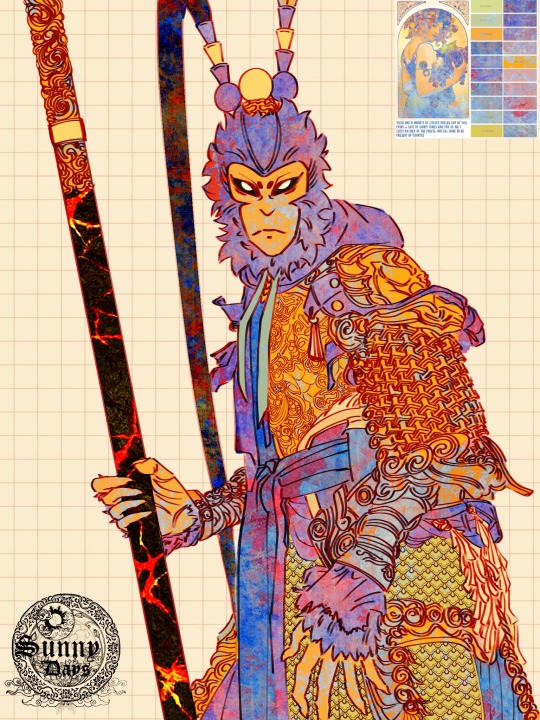
齊天大聖
#jttw#journey to the west#xiyouji#sun wukong#art#jttw fanart#journey to the west fanart#monkey king#monkey king fanart#monkey king hero is back#monkey king: hero is back(2015)#sun wukong fanart#it's beem a really rough week so I haven't been able to do anything at all#but y'all can have this#it was meant to be fully rendered but I couldn't find the motivation to do it#jttw au#journey to the west au#齊天大聖#孫悟空
234 notes
·
View notes
Text
Monkey King's Three-Tune Banana Fan (2015) 孙悟空三借芭蕉扇
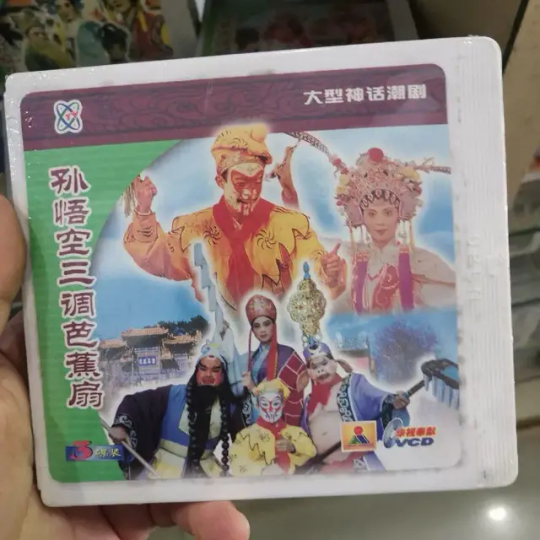
Director: Fang Zhanrong
Screenwriter: Zhang Huayun
Starring: Chen Xihe / Lin Biyun / Fang Zhanrong / Chi Mubiao
Country/Region of Production: Mainland China
Language: Mandarin Chinese
Date: 2015 (Mainland China)
Number of seasons: 3
Number of episodes: 45
Single episode length: 45
Also known as: Sun Wukong Borrows the Banana Fan Three Times / 孙悟空三借芭蕉扇 / 孫悟空三调芭蕉扇 / 孫悟空三借芭蕉扇 / 三借芭蕉扇 / 三调芭蕉扇
Type: Retelling
Summary:
It tells the story of Monk Tang, his master and his disciples, who went to the West to learn Buddhist scriptures and passed by the Flame Mountain.
Source: https://movie.douban.com/subject/36590989/
Link: N/A
#Monkey King's Three-Tune Banana Fan#孙悟空三借芭蕉扇#Sun Wukong Borrows the Banana Fan Three Times#孫悟空三调芭蕉扇#孫悟空三借芭蕉扇#三借芭蕉扇#三调芭蕉扇#jttw media#jttw television#television#lost media#live action#sun wukong#zhu bajie#sha wujing#tang sanzang#princess iron fan#bull demon king#princess jade face#retelling#rewrite
8 notes
·
View notes
Photo
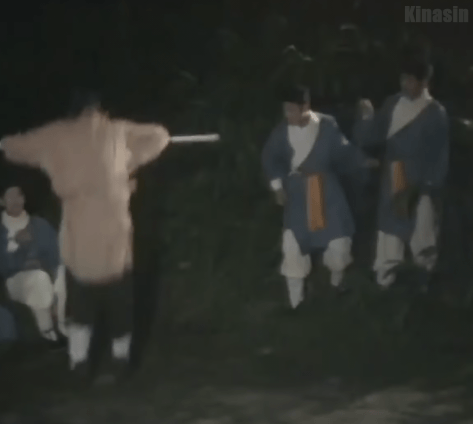
Journey to the West
51 notes
·
View notes
Text
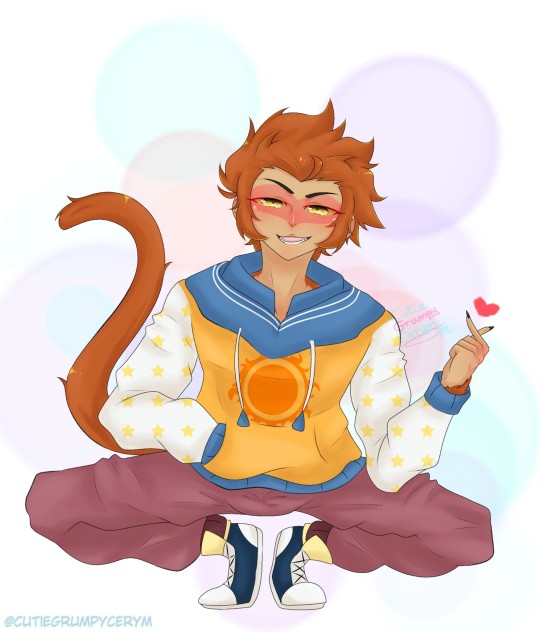
I really loved Wukong in casual clothes. 🐵👑
---------------
Art by me
PLEASE DON'T REPOST, COPY NOR TRACE MY ART !
ASK PERMISSION TO USE IT !
REBLOGS ARE HIGHLY APPRECIATED AND HELPFUL ! ^^
#lego monkie kid#monkie kid#lmk#sun wukong#lmk wukong#몽키키드#モンキーキッド#손오공#モンキーキング#孫悟空#monkie kid fanart#fanart#anime#digital art#myart#monkey king
75 notes
·
View notes
Text




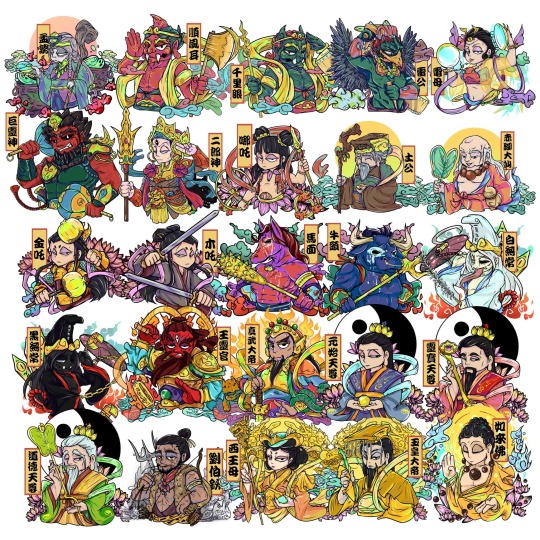
西遊記-
Bounus!- 花果山水簾洞美猴王齊天大聖孫悟空
Now my journey has end here, would like to thank all those who kept up with me
Truly appreciate it! Onward to new year!
youtube
#art#drawing#doodle#fanart#journey to the west#西遊記#monkey king#sun wukong#孫悟空#花果山水簾洞美猴王齊天大聖孫悟空#100 journey to the west#Youtube
35 notes
·
View notes
Photo
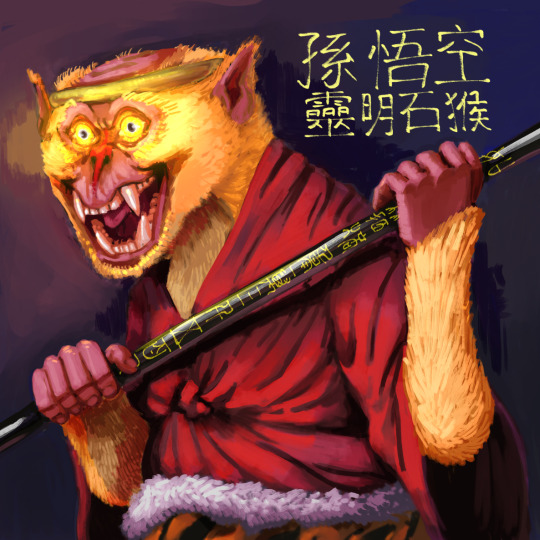
sun wukong the monkey king intelligent stone monkey
孫悟空靈明石猴
52 notes
·
View notes
Text
Is Six Ears an Aspect of Sun Wukong?
I've seen some people claim that Six Ears is not an aspect of Sun Wukong's mind. They either ignore the references to "one mind" and "two Minds" (and the Buddhist philosophy behind them), or they just say it's allegory and nothing more. Well, there are actually internal story details from chapter 58 that support the close connection between the Monkey King and his doppelganger.
1) The Bodhisattva Guanyin and her “eyes of wisdom” (huiyan, 慧眼) can’t tell them apart:
The various deities and the Bodhisattva stared at the two for a long time, but none could tell them apart (Wu & Yu, 2012, vol. 3, p. 106).
眾諸天與菩薩都看良久,莫想能認。
[And later:]
Pressing his palms together, our Buddha said, “Guanyin, the Honored One, can you tell which is the true Pilgrim and which is the false one?” “They came to your disciple’s humble region the other day,” replied the Bodhisattva, “but I truly could not distinguish between them …” (Wu & Yu, 2012, vol. 3, p. 114).
我佛合掌道:「觀音尊者,你看那兩個行者,誰是真假?」菩薩道:「前日在弟子荒境,委不能辨 …
2) The tight-fillet spell works on both Monkeys:
Asking Moksa and Goodly Wealth [a.k.a. Red Boy] to approach her, the Bodhisattva whispered to them this instruction: “Each of you take hold of one of them firmly, and let me start reciting in secret the Tight-Fillet Spell. The one whose head hurts is the real monkey; the one who has no pain is specious.” Indeed, the two disciples took hold of the two Pilgrims as the Bodhisattva recited in silence the magic words. At once the two of them gripped their heads and rolled on the ground, both screaming, “Don’t recite! Don’t recite!” The Bodhisattva stopped her recital … (Wu & Yu, 2012, vol. 3, p. 106).
菩薩喚木叉與善財上前,悄悄吩咐:「你一個幫住一個,等我暗念緊箍兒咒,看那個害疼的便是真,不疼的便是假。」他二人果各幫一個。菩薩暗念真言,兩個一齊喊疼,都抱著頭,地下打滾,只叫:「莫念,莫念。」菩薩不念 …
(If someone disagrees with this one, they need to show where it says Six Ears is faking the pain.)
3) Both the Jade Emperor and the imp-reflecting mirror can’t tell them apart:
Issuing a decree at once to summon Devariija Li, the Pagoda-Bearer, the Jade Emperor commanded: “Let us look at those two fellows through the imp-reflecting mirror, so that the false may perish and the true endure.” The devaraja took out the mirror immediately and asked the Jade Emperor to watch with the various celestial deities. What appeared in the mirror were two reflections of Sun Wukong: there was not the slightest difference between their golden fillets, their clothing, and even their hair. Since the Jade Emperor found it impossible to distinguish them, he ordered them chased out of the hall (Wu & Yu, 2012, vol. 3, pp. 107-108).
玉帝即傳旨宣托塔李天王,教:「把照妖鏡來照這廝誰真誰假,教他假滅真存。」天王即取鏡照住,請玉帝同眾神觀看。鏡中乃是兩個孫悟空的影子,金箍、衣服,毫髮不差。玉帝亦辨不出,趕出殿外。
4) Only omniscient beings like Investigative Hearing (Ksitigargbha's mount) and the Buddha can tell the two apart:
[T]he Bodhisattva Ksitigarbha said, “Wait a moment! Wait a moment! Let me ask Investigative Hearing to listen for you.” That Investigative Hearing, you see, happens to be a beast that usually lies beneath the desk of Ksitigarbha. When he crouches on the ground, he can in an instant perceive the true and the false, the virtuous and the wicked among all short-haired creatures, scaly creatures, hairy creatures, winged creatures, and crawling creatures, and among all the celestial immortals, the earthly immortals, the divine immortals, the human immortals, and the spirit immortals resident in all the cave Heavens and blessed lands in the various shrines, rivers, and mountains of the Four Great Continents. In obedience, therefore, to the command of Ksitigarbha, the beast prostrated himself in the courtyard of the Hall of Darkness, and in a little while, he raised his head to say to his master, “I have the name of the fiend …” (Wu & Yu, 2012, vol. 3, p. 112)
…地藏王菩薩道:「且住,且住。等我著諦聽與你聽個真假。」原來那諦聽是地藏菩薩經案下伏的一個獸名。他若伏在地下,一霎時,將四大部洲山川社稷,洞天福地之間,蠃蟲、鱗蟲、毛蟲、羽蟲、昆蟲、天仙、地仙、神仙、人仙、鬼仙,可以照鑒善惡,察聽賢愚。那獸奉地藏鈞旨,就於森羅庭院之中,俯伏在地。須臾,擡起頭來,對地藏道:「怪名雖有…」。
[...]
Smiling, Tathagata said, “Though all of you [Guanyin] possess vast dharma power and are able to observe the events of the whole universe, you cannot know all the things therein, nor do you have the knowledge of all the species” (Wu & Yu, 2012, vol. 3, p. 114).
如來笑道:「汝等法力廣大,只能普閱周天之事,不能遍識周天之物,亦不能廣會周天之種類也。」
[…]
[After the Buddha explains the ten categories of life and the four types of celestial primates (see the introduction here), he says:]
As I see the matter, that specious Wukong must be a six-eared macaque … (Wu & Yu, 2012, vol. 3, p. 115).
我觀假悟空乃六耳獼猴也 …
In short, the twin monkeys are so hard to tell apart simply because they are representations of the true and illusionary minds (refer back to the article) within the same person.
So what does this say about Shadowpeach? I know LMK is a separate entity from the novel, but applying canon to this ship would make it more self-love, right? I'm sure those with creatively perverted minds know what I'm taking about.
#Sun Wukong#Monkey King#Six Ears#Six-Eared Macaque#Journey to the West#JTTW#Guanyin#Buddha#Jade Emperor#Ksitigharbha#Heavenly King Li Jing#Devaraja Li Jing#Imp-Reflecting Mirror#Lego Monkie Kid#LMK#MK#Buddhism#two minds#shadowpeach
108 notes
·
View notes
Text
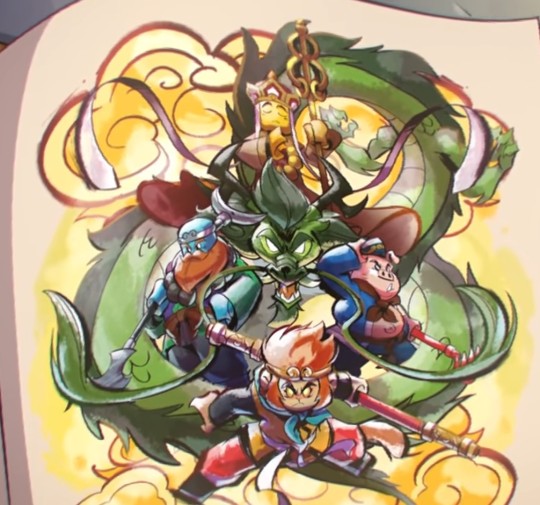
Here's the backstory of the Pilgrims in accordance to the novel. Because at this point, I might as well!
SŪN WÙKŌNG (孫悟空)
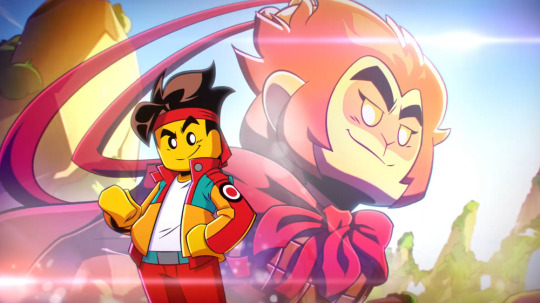
The monkey, the myth, the legend himself!
On the continent of East Pūrvavideha in the country of Àolái (傲來) atop Huāguǒshān (花果山)—Flower-Fruit Mountain—there lived monkey who hatched from stone, and being the only one in his troop to be brave (or impulsive) enough to rush through the local waterfall—what would become Shuǐlián Dòng (水帘洞), or Water-Curtain Cave—he's subsequently made the Hóuwáng (猴王), or Monkey King.
Years later, due to having an existential crises, he decides to go find the secret to immortality and eventually encounters an immortal named Pútí Zǔshī (菩提祖师), Patriarch Subodhi, whom Wùkōng would train under for ten years. Under his tutelage, the Monkey King received lessons on—among other things—human language and etiquette, calligraphy, philosophy, and magic. It was also Subodhi who gave Wùkōng his name, giving the following explanation:
"Though your features are not the most attractive, you do resemble a pignolia-eating monkey (husun). This gives me the
idea of taking a surname for you from your appearance. I intended to call you by
the name Hu. If I drop the animal radical from this word, what’s left is a
compound made up of the two characters, gu and yue. Gu means aged and yue
means female, but an aged female cannot reproduce. Therefore, it is better to
give you the surname of Sun. If I drop the animal radical from this word, what we have left is the compound of zi and xi. Zi means a boy and xi means a baby,
and that name exactly accords with the fundamental Doctrine of the Baby Boy.
So your surname will be Sun."
The
Patriarch said, “Within my tradition are twelve characters that have been used to
name the pupils according to their divisions. You are one who belongs to the
tenth generation."
"Which twelve characters are they?" asked the Monkey King.
The Patriarch replied, "They are: wide (guang), great (da), wise (zhi), intelligence (hui), true (zhen), conforming (ru), nature (xing), sea (hai), sharp
(ying), wake-to (wu), complete (yuan), and awakening (jue). Your rank falls
precisely on the word 'wake-to' (wu). You will hence be given the religious
name ‘Wake-to-the-Void’ (wukong). All right?"
"Splendid! Splendid!" said the
Monkey King, laughing. "Henceforth I shall be called Sun Wukong."
Eventually, Subodhi sent Sūn Wùkōng away after the monkey displayed his new transformation powers to his fellow disciples, but not before making him promise to not tell anyone where he had learned his abilities from.
Later, after returning to Flower Fruit Mountain and stopping the demon from further terrorizing their home, Sūn Wùkōng then travels to the East Sea for a weapon. Of course he soon obtains his famous golden staff—Rúyì Jīn Gū Bàng (如意金箍棒)—from Áo Guāng (敖光), but as for the rest of the items, he gets the phoenix-feathered cap—Fèngchìzǐjinguān (鳳翅紫金冠)—from Áo Qīn (敖欽), Dragon of the South, the cloud-stepping shoes—Ǒusībùyúnlǚ (藕絲步雲履)—from Áo Shùn (敖順), Dragon of the North, and the golden chainmail—Suǒ Zi Huángjīn Jiǎ (鎖子黃金甲)—from Áo Rùn, Dragon of the West.
Later, Monkey manages to cheat death itself by scratching out his name as well as those belonging to several other monkeys from one of the ledgers of the dead.
Finally grabbing the attention of the Jade Emperor, Wùkōng gets tasked by Heaven to become their BìMǎWēn (弼馬溫), the overseer of the imperial dragon-horses, in order to keep him out of trouble. And to his credit, he does an excellent job at it; as a result of this position, horses in general end up fearing and respecting him.
But then when Sūn Wùkōng realizes just how low of a position he's actually in, he abandons his post, proclaims himself Qítiān Dàshèng (齐天大圣)—Great Sage Equal to Heaven—and soon enough, he's at war with the entirety of the Celestial Host and later ends up becoming even more immortal than he already was. Long story short, he's soon bested by Buddha and gets trapped under Five Phases Mountain, Wǔhángshān (五行山), for the next five hundred years.
After being freed, he's given the Jīngūquān (金箍圈) to wear on his head to ensure his good behavior.
TÁNG SĀNZÀNG (唐三藏)

Based on a real monk of the same name, Táng Xuánzàng (唐玄奘)—courtesy name Sēng (唐僧)—also called Táng Sānzàng or Tripiṭaka, was born to a man named Chén Guāngruǐ (陳光蕊) and a chief minister's daughter named Yīn Wēnjiāo (殷溫嬌), and even before going on the pilgrimage, this man has never known peace for very long. And neither have his parents.
For starters, in his first life, he was known as Jinchan Zi (金蝉子)—Golden Cicada—the second disciple of Buddha, but was so inattentive towards the lessons that he eventually entered a cycle of reincarnation as punishment; by the time he's born to the Chens, he'd already been through ten previous lives.
And then it gets worse.
Having been made governor of Jiāngzhōu (江州) shortly after the wedding, Chén Guāngruǐ and Yīn Wēnjiāo began to travel to their new home, only for Guāngruǐ to be killed by the boatmen who were supposed to take them there because one of them—Liú Hóng (劉洪)—wanted Wēnjiāo for himself. Fortunately, Guāngruǐ body is found by a yaksha loyal to the local Dragon King of Hóngjiāngkǒu (洪江口), whom Guāngruǐ had previously rescued while said Dragon King had been in the guise of a fish; repaying kindness with kindness, Guāngruǐ's soul was allowed to stay with the king until the time came for it to reunite with his body, which was given a preservative pearl so it wouldn't decay.
Meanwhile, after giving birth to a son, Wēnjiāo sends her baby down the river to save him from being killed by Liú Hóng, having been promised by the celestials that she'd be reunited with her family one day. This son is then found by Monk Fǎmíng (法明) of Jīnshān Temple (金山寺) and given the nickname Jiāng Liú (江流), River Float, as well as the religious name Xuánzàng, and after eighteen years of being oblivious to his true identity, he finally reunites with his mother and grandparents, gets Liú Hóng arrested, and then reunites with his father afterwards.
Anastasia AU, anyone?
Anyway, he's later selected to go on a journey to India, called Tiānzhú (天竺), to retrieve a set of Buddhist scriptures, becomes sworn brothers with Emperor Tàizōng (唐太宗) himself before leaving, and then eventually meets a certain mystic monkey who's been trapped under a mountain for five hundred years.
ÁO LIÈ (敖烈)
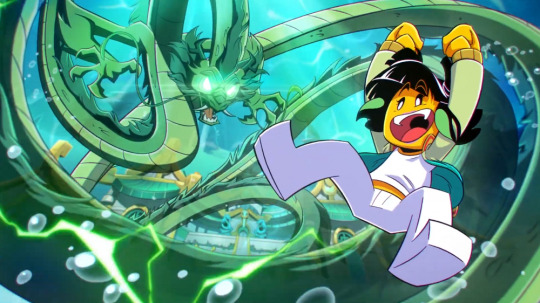
Known as the Third Jade Dragon Prince and the White Dragon Horse, the son of Áo Rùn is never actually given a name in the original novel, but Liè is the most common in adaptations, and that's when he's given a name at all. But no matter what, his story remains more or less the same throughout—due to inadvertently setting his father's pearls and palace on fire, Áo Rùn reported him to the Jade Emperor, who sentenced him to be executed, but not before having Ao Liè lashed three hundred times first.
But of course, Liè was ultimately saved by Guānyīn a few days before he was set to be executed and was then tasked by her to carry Táng Sānzàng to the West before having his horns and scales taken off, only to regain them at the end of the journey. Being the second of the group Táng Sānzàng would meet, the encounter happens due to Liè eating the monk's original horse and a fight with Sun Wukong ensues until the matter gets resolved with Guānyīn's help.
Technically, he's never counted as an official disciple in the original book and neither Zhū Bājiè and Sha Wujing even realize Liè isn't a regular horse until two months after joining the group.
Other than that, Liè doesn't really do much as far as the original book is concerned, save for two instances. One is sometime after Sun Wukong had been banished the first time and everyone else in the group had been indisposed in some way by Huáng Páo Guài (黃袍怪), Yellow Robe Demon.
Everyone, that is, except for Áo Liè!
In order to save Sānzàng from this latest threat, he disguises himself as a palace maiden, tries to stab the demon while performing a sword dance and... loses. To the point of getting his leg injured.
It's okay, he did his best.
So Zhū Bājiè soon finds him hiding out, and after the pig demon attempts to quit the journey altogether, Áo Liè proceeds to give him one hell of a call out while also showing just how much faith he has in Sūn Wùkōng.
Once again, to quote the Anthony Yu translation (side note for those unfamiliar with Yu, Bājiè's name is given a literal translation, hence Eight Rules):
Idiot mounted the clouds quickly and went back to the city; in a little while, he reached the post-house. The moon was bright and people had become quiet at this time, but he searched the corridors in vain to find any trace of his master. All
he saw was the white horse lying there: his whole body was soaked and on one
of his hind legs was the mark of a bruise about the size of a pan. "This is doubly
unfortunate!" said Eight Rules, greatly startled. "This loser hasn’t traveled. Why
is he sweating like that, and with a bruise on his leg? It must be that some evil
men have robbed our master, wounding the horse in the process."
The white horse recognized that it was Eight Rules; assuming human speech
suddenly, he called out: "Elder Brother!" Idiot was so shaken that he fell on the ground. Pulling himself up, he was about to dash outside when the white horse
caught hold of the monk’s robe by his teeth, saying again, "Elder Brother, don’t
be afraid of me."
Idiot was so shaken that he fell on the ground. Pulling himself up, he was about to dash outside when the white horse caught hold of the monk’s robe by his teeth, saying again, "Elder Brother, don’t be afraid of me."
"Brother,' said Eight Rules, still shaking, "why are you talking today? When
you talk like that, it has to mean that some great misfortune is about to befall
us."
The little dragon said, "Did you know that Master had landed in a terrible
ordeal?"
"No, I didn’t," said Eight Rules.
The little dragon said, "Of course, you didn't! You and Sha Monk were flaunting your abilities before the king, thinking that you could capture the demon and be rewarded for your merit. You didn't expect that the demon was so powerful and you were the ones no doubt who were beaten. At least one of you could have returned to give us the news, but there was not one word from either of you. That monster-spirit had changed himself into a handsome scholar and broken into the court to present himself to the king as an imperial relative. Our master was changed by him into a ferocious striped tiger, who was then taken captive by the officials and locked up in an iron cage in one of the palace chambers. When I heard how Master suffered, my heart felt as if it had been stabbed by a sword. But you were gone for nearly two days, and I was afraid that any further delay might mean that Master would be killed. So I had no choice but to change back into my dragon body to go and try to rescue him. When I reached the court, I couldn't find Master, but I met the monster in the Silver Peace Palace. I changed into the form of a palace maid, trying to deceive him. He asked me to do a sword dance, during which I tried to slash him. He escaped my blow and defeated me instead with a candelabrum. I tried desperately to hit him when I threw the sword at him, but he caught it instead and gave me a blow on my hind leg with that candelabrum. I dived into the imperial moat and saved my life; the bruise on my leg was caused by the candelabrum."
When Eight Rules heard these words, he said, "Is that all true?"
"You think I'm deceiving you?" said the little dragon.
Eight Rules asked, "What are we going to do? What are we going to do? Can you move at all?"
"If I can," said the little dragon, "what then?"
"If you can move at all," said Eight Rules, "move into the ocean then. Old Hog will pole the luggage back to the Old Gao Village to pick up my wife again."
When the little dragon heard this, he clamped his mouth onto Eight Rules's shirt and refused to let go. As tears fell from his eyes, he said, "Elder Brother, you mustn't become indolent."
"Why not?" said Eight Rules. "Brother Sha has already been caught by him, and I can't beat him. If we don't scatter now, what are we waiting for?"
The little dragon thought for some time before he spoke again, tears streaming down his cheeks. "Elder Brother, don't mention the word scatter. If you want to save Master, you have to go and ask a person to come here."
"Who is that?" asked Eight Rules.
The little dragon said, "You'd better hurry and mount the clouds to go to the Flower-Fruit Mountain, so that you can invite our Big Brother, Pilgrim Sun, to come back. Most certainly he has dharma power great enough to subdue this fiend and rescue Master, avenging at the same time the shame of our defeat."
"Brother," said Eight Rules, "let me go ask someone else. That monkey and I are not on the best of terms, you know. When he killed that Lady White Bone back there on the White Tiger Ridge, he was mad at me already for wheedling Master into reciting the Tight-Fillet Spell. I was just being frivolous, and I didn’t think that the old priest would really recite it and even banish him. I don't know how he hates me now, and I'm certain also that he won’t come back. Suppose we have a little argument then: that funeral staff of his is pretty heavy, you know. If he doesn't know any better at that moment and gives me a few strokes, you think I'll be able to live?"
The little dragon said, “He won't hit you, because he is a kind and just Monkey King. When you see him, don't say that Master is in peril; just tell him that Master is thinking of him and deceive him into coming. When he gets here and sees what's happening, he will not get mad. He will want most certainly to have it out with the monster-spirit instead. Then the demon will surely be caught and Master will be saved."
"All right, all right!" said Eight Rules. "You are so dedicated. If I don't go, it'll mean that I’m not dedicated. I'll go, and if indeed Pilgrim consents to come, I'll return with him. But if he is unwilling, then don't expect me, because I won't be coming back either."
"Go! Go!" said the little dragon. “He will certainly come."
Clearly the dragon is the true unsung hero of this story.
As for the second instance, long story short, Sūn Wùkōng wanted to make what he ended up calling the Elixer of Black Gold for an ailing king and needed Liè's help—in his horse form—for one of the ingredients.
ZHŪ BĀJIÈ (豬八戒)
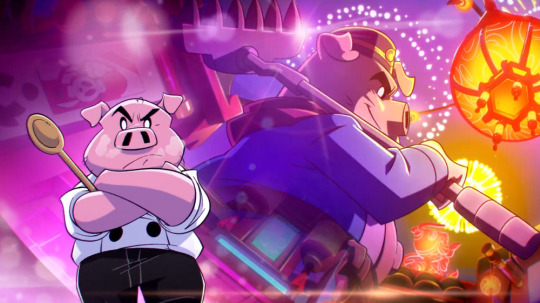
Originally holding the Heavenly title of Tiānpéng Yuánshuài (天篷元帅)—Marshall of the Heavenly Reeds—Zhū Wùnéng (猪悟能)—also known as Zhū Gāngliè (猪刚鬛) and Zhū Bājiè, and often given called Idiot, dāizi (呆子), was punished via reincarnation because he'd attempted to seduce the moon goddess Cháng'é (嫦娥), a massive no-no! In certain retellings, such as the 1996 version, this is expanded to him going through many lifetimes of tragic romances. Regardless, his soul eventually passes through the womb of a sow by accident, thus becoming the pig demon we know him as today.
The second of Táng Sānzàng's disciples, Zhū Wùnéng joins the pilgrimage after he kidnaps and marries a young woman from a wealthy family in Gāolǎozhuāng (高老莊) named Gāo Cuìlán (高翠蘭). Disguising himself as Cuìlán, Sūn Wùkōng eventually defeats Wùnéng in battle and he becomes a disciple afterwards, earning the name Bājiè (referring to the first eight of the ten Buddhist commandments) in the process.
Glutenous and selfish, Zhū Bājiè is often at odds with Sūn Wùkōng and also tries to find reasons to quit the pilgrimage on more than one occasion. His weapon is known as jiǔchǐdīngpá (九齒釘耙), the Nine-Toothed Rake.
SHĀ WÙJÌNG (沙悟淨)
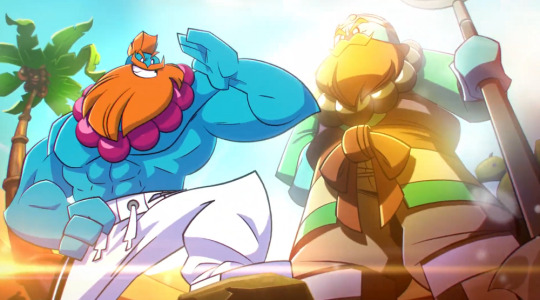
And last but not least, Shā Wùjìng! Once Juǎnlián Dàjiàng (捲簾大將), or Curtain-Raising General, in Heaven, Wùjìng was banished after he carelessly broke a crystal cup during the Festival of Immortal Peaches, and as such, was not only banished to the Mortal Realm as punishment, but was also sent flying swords to stab him every week. Growing desperate, he soon starts to eat any traveler who passes by his territory. Taking mercy upon him, Guānyīn tasks him with also accompanying the Táng Monk on his mission.
Eventually, the other pilgrims encounter Wùjìng, Wùkōng fights him for a bit, and then after that gets resolved, our heroes, having finally assembled, are all ready to carry on with their journey to the West. He also carries a staff.
You all know the rest: they traveled for the fourteen years in total (as opposed to the eighteen years it took the real Táng Xuánzàng), got the scriptures, Sānzàng completely forgot his promise to a turtle to ask Buddha about how much longer it would take for him to regain human form and so the Pilgrims were forced to swim to shore after being thrown overboard (no one ever say that older books can't be hilarious), and then they were all granted titles upon returning home: Táng Sānzàng and Sūn Wùkōng are made Zhāntán Gōngdé Fuó (旃檀功德佛) and Dòu Zhànshèng Fó (鬥戰勝佛), or Buddha of Candana Merit and Buddha Victorious in Strife, respectively, Zhū Bājiè is named Jìngtán Shǐzhě (淨壇使者), or Cleanser of the Altars, Shā Wùjìng becomes Jīnshēn Luóhàn (金身羅漢), or Golden-Bodied Arhat, and Ao Liè gets promoted to Bābùtiān Lóngmǎ (八部天龍馬), or Dragon Horse of the Eight Heavenly Sections.
#journey to the west#jttw#monkie kid#lego monkie kid#lmk#sun wukong#monkey king#tang sanzang#white dragon horse#zhu bajie#sha wujing
576 notes
·
View notes
Note
Do you know why Sanzomon is with those other digimon in her card art? Chohakkaimon, Gokuwmon and Shawujinmon I think. Is it random or a reference?
Yes! I'm glad you asked @tenzeniths !
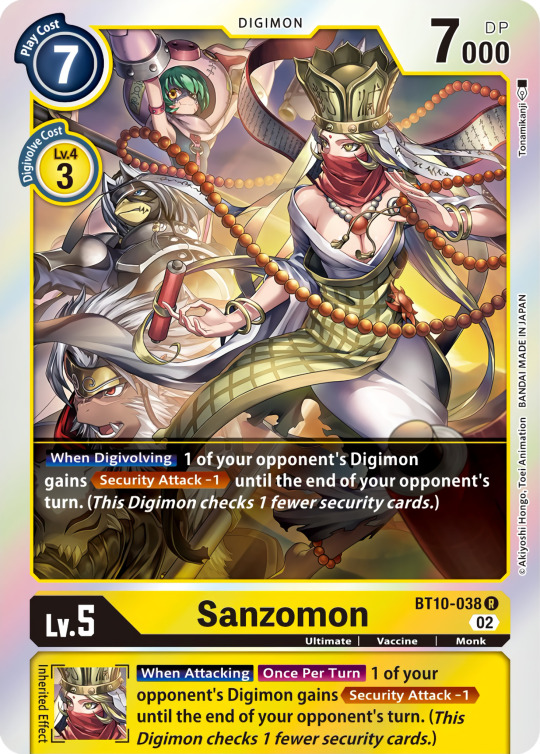
Gokuwmon, Sanzomon, Cho-Hakkaimon, and Sagomon.
So, what do these Digimon have in common? It’s probably not that obvious to Western fans, but these Digimon are based on the main characters from the famous Chinese tale 西遊記 Xī Yóu Jì, “Journey to the West”.
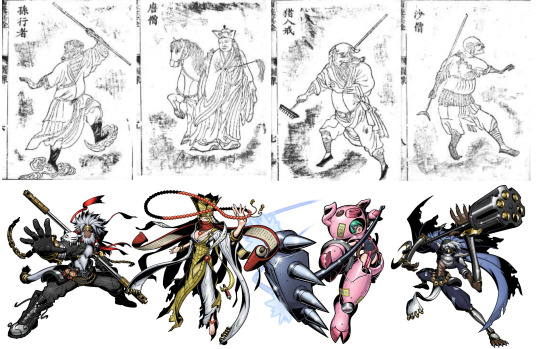
First off, we have Gokuwmon, who is based on the Monkey King, 孫悟空 Sūn Wùkōng, or how the Japanese transcription reads, Son Gokū. This character has inspired other popular culture characters before, most well known, Son Goku from Dragon Ball. The monkey looking tailed beast of the Naruto series, the four-tail, Son Goku, is also named after this character.
The "w” in Gokuwmon is supposed to show it should be pronounced like a “coo” sound.
Next we have Sanzomon, who is based on the monk 唐三藏 Táng Sānzàng, which is read as Sanzō in Japanese.
Then Cho-Hakkaimon is based on the Pig 豬八戒 Zhū Bājiè, read as Cho Hakkai in Japanese.
Lastly Sagomon is based on 沙悟淨 Shā Wùjìng, read as Sagojo in Japanese. It is a recolor of Shawujinmon, which is named after the same character.
While Gokuwmon, Sanzomon, and Sagomon seem to share somewhat of a design philosophy, Cho-Hakkaimon does stick out a little, which probably makes the group look more confusing if you don't know the reference.
However, while Shawujinmon debuted in 2006, in the Digivice iC 20X toy in relation to the Digimon Savers series, its recolor Sagomon debuted in a Digimon Jintrix set later in 2011, along with the other three of the group
It’s really interesting. It feels like once you’re even a little familiar with elements from “Journey to the West” you’ll notice references to it in many popular franchises.
#digimon#digimon card game#digimon tcg#digica#digisafe#デジカ#digimon references#lov asks#Sanzomon#tenzeniths#recolors#lov rambles#subspecies
136 notes
·
View notes
Text
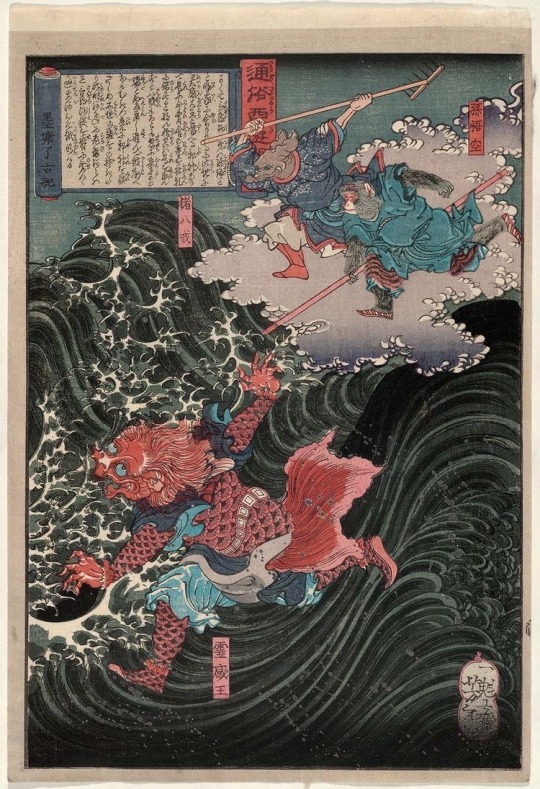
Monkey (Son Gokû) and Bajie (Cho Hakkai) Fight Great King of Miraculous Power (Reikan'ô), a Transformed Goldfish, from the series The Journey to the West, A Popular Version (Tsûzoku Saiyûki)
「通俗西遊記(つうぞくさいゆうき)」「孫悟空」「猪八戒」「霊感王」 月岡芳年
88 notes
·
View notes
Text
Hey, Qi Xiaotian, hey.

How come you, Child, Awakened To Emptiness (= 悟空 = Wukong)?
(And not even going into that he’s often called ‘child / kid’ or 小 子 = literally “little child” in the Chinese dub by others, and the pun in Monkey King’s surname 孫 = Sun. Please read this analysis for context:
https://journeytothewestresearch.com/2017/05/20/monkeys-religious-name-and-its-connection-to-daoist-doctrine/)
20 notes
·
View notes
Text
a supplement to the journey to the west
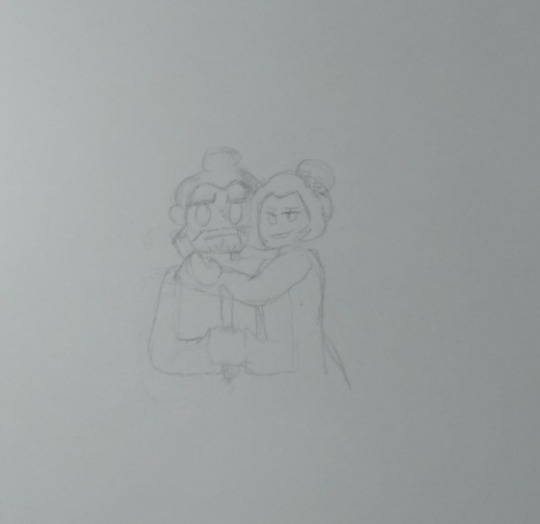
Monkey King transforms the into the beautiful lady yu, the concubine of king xiang yu of chu to retrieve a" mountain swirling bell "and, I think, ends up convincing him to kill the real yu
孫悟空遇到了項羽,悟空變成虞美人後,用計讓項羽親手把真的虞美人殺了,一連耍得項羽團團轉。
translation
Sun wukong met xiang yu, and after wukong became the yu mei, he used the plan to have xiang yu kill the real yu mei with his own hands, causing xiang yu to turn around again and again.

La ca
youtube
0 notes
Text
Monkey King Monkey King (2000) 齊天大聖孫悟空


Director: Zheng Shaofeng
Screenwriter: Huang Meijin
Starring: Zuo Xiaohu / Lin Kaiwen / Zhu Guohong / Shi Feng / Wan Yinpeng / Xu Huihui / Mai Maijia / Gao Ming / Liu Ding / Hong Hui / Shao Jin
Genre: Comedy / Fantasy / Adventure
Country/Region of Production: Taiwan, China
Language: Hokkien / Mandarin Chinese / English
Number of Seasons: 1
Number of episodes: 20
Also known as: Journey to the West (Mainland) / 大话西游(陆)
Type: Retelling
Summary:
The Taiwanese version of "Journey to the West" was produced by Taiwan Television in 2000, starring Zuo Xiaohu, Lin Qiwen, and Zhu Guohong. The title of the drama is "Monkey King, Monkey King". When it was broadcast in mainland China, it was also called "Journey to the West". The main plot is still based on the four masters and disciples of Tang Monk and their disciples going to the West to learn Buddhist scriptures, but the plot details have been "slightly" changed.
Source: https://movie.douban.com/subject/30168046/
Link: https://www.youtube.com/watch?v=u8jhcLXmiRM&list=PLtww_vcpAB8pz5kBf0EGlwfukh0K2skzn&index=21&ab_channel=TTV%E5%8F%B0%E8%A6%96%E5%AE%98%E6%96%B9%E9%A0%BB%E9%81%93TTVOfficialChannel
#Monkey King Monkey King#齊天大聖孫悟空#Journey to the West (Mainland)#大话西游(陆)#jttw media#jttw television#television#live action#retelling#sun wukong#zhu bajie#sha wujing#tang sanzang#monk tripitaka#demon bull king#princes iron fan#rewrite
11 notes
·
View notes
Text
Sun Wukong rides an electric bike! Maybe the Monkey King lost his mount.齊天大聖孫悟空騎電動車出行!為啥骑车上班?白龍馬飛走了。
1 note
·
View note
Photo
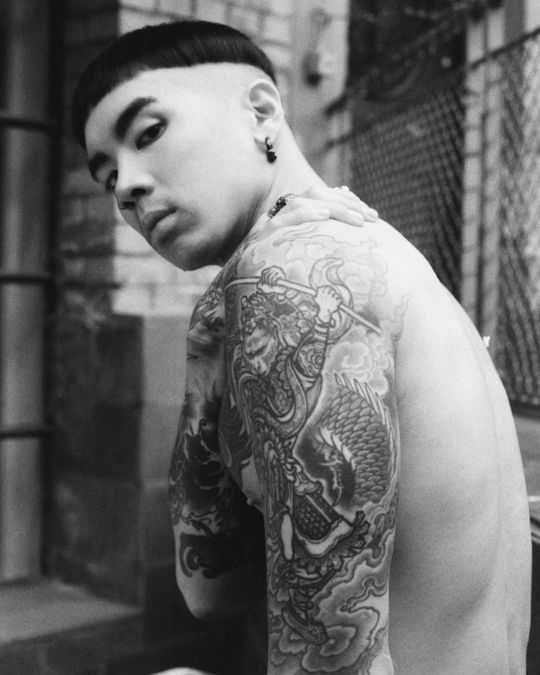
Many people been questioning me about the meaning of my tattoo on my left upper arm. The simple answer probably would be because I was born in the year of the monkey but a more profound and deeper meaning would be because the tattoo itself reminds me of my childhood and depicts „The Monkey King“ who is the protagonist of the famous classic Chinese novel. The Monkey Sun Wu Kong, who owns magical powers revolts against Heaven, and is defeated by the Buddha, is being cast out of heaven, and then, redeems himself and gains immortality by helping the monk Xuan Zang on his pilgrimage to India in search of Buddhist scriptures. 📿🕉️☸️ There has been a real person named Xuan Zang (602-664 AD), a Buddhist monk who journeyed to India in search of Buddhist sutras. After redeeming himself, and he becomes a metaphor for bravery, loyalty, and dedication to righteousness and thus becoming a arhat. Monday #monkeybusiness Fun editorial shot with amazingly talented friend @tatsianatribunalova 🤍🖤 THANK YOU!!! Thanks for the great shot 🤍🤍🤍 Hope everyone had a wonderful start into the new week ✨✨✨ #philippchung #philippchungphotography #philippchungart #philippchungtattoo #stuttgart #taipei #seoul #busan #analogphotography #35mm #analogfilm #35mmportrait #攝影師 #藝術家 #模特兒 #孫悟空 (at Taipei, Taiwan) https://www.instagram.com/p/CnMbNOrruF3/?igshid=NGJjMDIxMWI=
#monkeybusiness#philippchung#philippchungphotography#philippchungart#philippchungtattoo#stuttgart#taipei#seoul#busan#analogphotography#35mm#analogfilm#35mmportrait#攝影師#藝術家#模特兒#孫悟空
0 notes